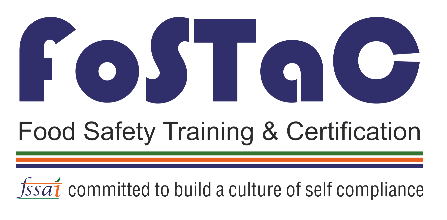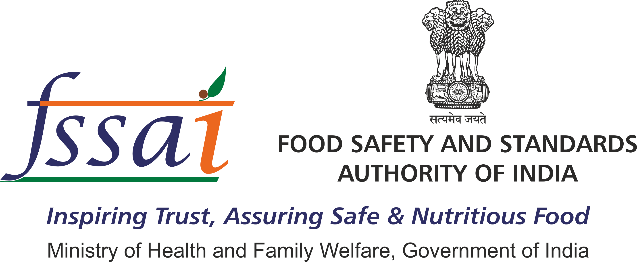In pursuance of Section 16 (3)(h) of the Food Safety and Standards Act 2006, Food Safety and Standards Authority of India (FSSAI) has to provide training programmes in Food Safety and Standards for persons (whether within or outside their area) who are or intend to become involved in food businesses, whether as food business operators or employees or otherwise.
In this regard, FSSAI had initiated the largest Food Safety Training & Certification (FoSTaC) programme in July, 2017. The FoSTaC programme is aimed at creating a pool of food safety supervisors (FSS), who are trained in good hygiene and manufacturing practices as per requirements in Schedule 4 of Food Safety and Standards Licensing and Registration Regulations, 2011.
Objective:
- To enhance the availability of skilled/ trained manpower in the food industry.
- Creating an improved environment of self-compliance to FSS Act, Rules and Regulations by the responsible Food Businesses.
- Bringing a behavioural change and inculcating a culture of Food safety in the country.
To help FBOs understand and compliance with hygiene and sanitary requirements, the Schedule 4 of Food Safety and Standards Licensing and Registration Regulations, 2011 have been simplified to deliver training through 25 certification courses (24+1 self-learning course) developed by a panel of domain experts empanelled by FSSAI covering the entire food value chain.
In the view of addressing the training needs of all types of food businesses at various levels in the food system, a total of 19 courses at three levels, basic, advanced and special have been developed. Later, it was re-structured into Basic, Advance and Awareness courses with a total of 25 courses (24+1 self-learning course). Also, it includes a provision to add more sector specific courses to the current course structure as per the demand. The courses are currently delivered through a wide network of training partners, trainers and assessors..
Training is conducted in a cascading mode. First, the empanelled National Resource Persons (NRPs) train the trainers and then the trained trainers train hundreds of food safety supervisors. These food safety supervisors in turn train food handlers in their food business premises.
An IT-platform has been developed to manage these training programmes end-to-end. The entire training programme is managed by the online FoSTaC Portal. Also, it provides ease of access and transparency in conducting training.
A total of 950000 above food safety supervisors have been trained in over 32000 trainings in the first five years throughout the country after the initiation of the FoSTaC. Organic growth of training capacity under FoSTaC shows that there is demand for these kinds of training courses. Development of such a large training capacity in the country under FoSTaC is an evidence to the fact that country is undergoing major transformation as far as food safety is concerned. FoSTaC trainings are expected to bring in a culture of self-compliance on food safety measures amongst the food business and raise the bar for food safety and hygiene in the country.
The FoSTaC course structure


